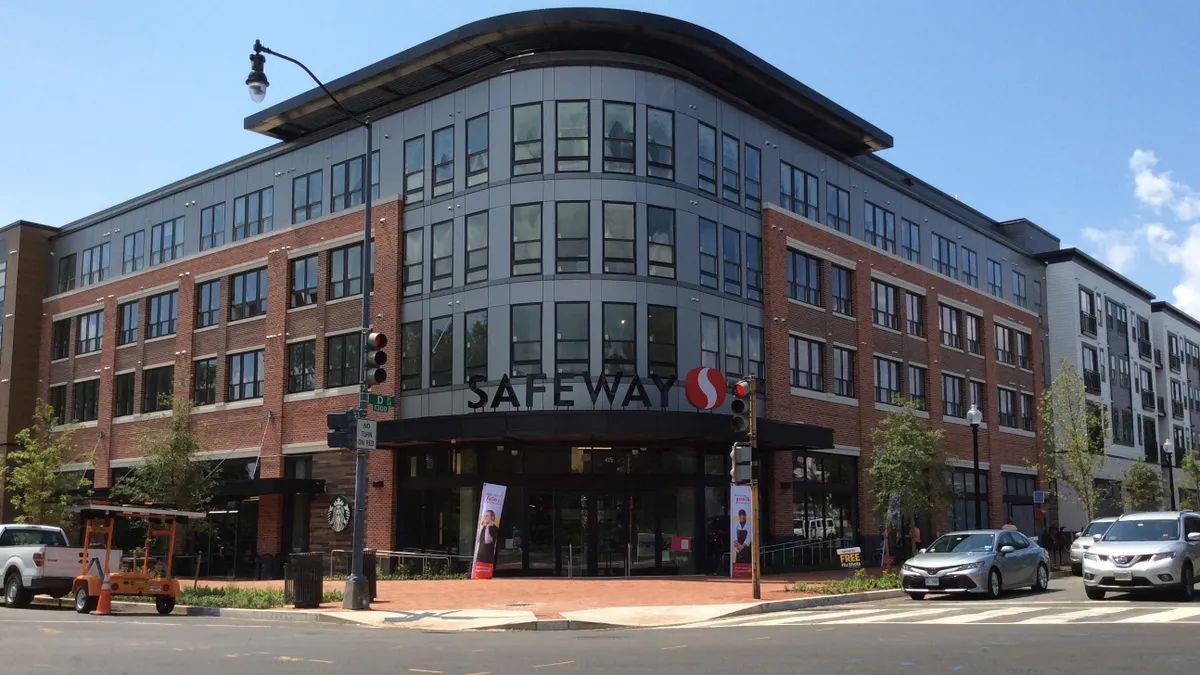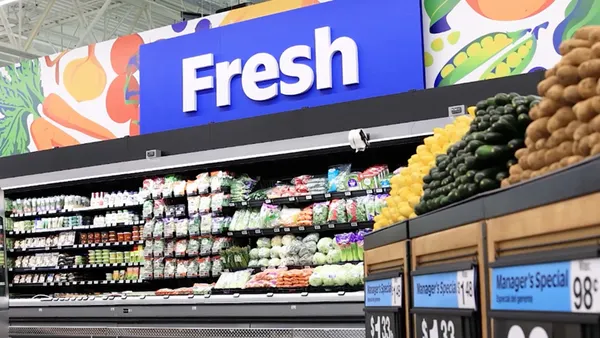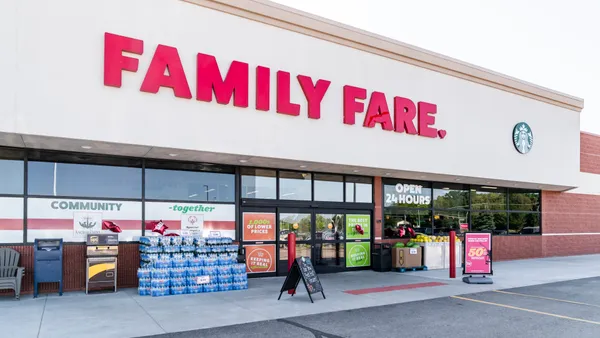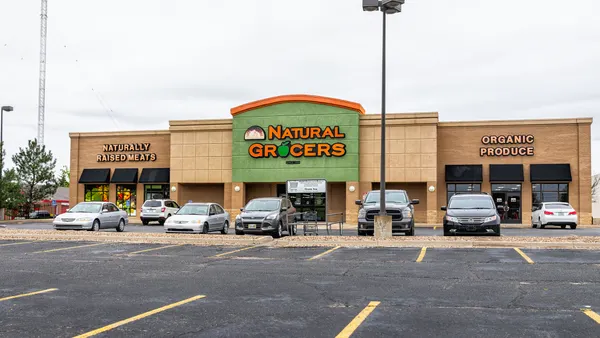Dive Brief:
- Albertsons is evaluating "potential strategic alternatives" in an effort to accelerate growth and boost its value, the supermarket chain announced in a press release on Monday.
- The retailer's board of directors will examine a range of possible actions, including "financial transactions and development of other strategic initiatives to complement Albertsons’ existing businesses," but has not determined when it will complete the review, according to the announcement.
- In a note to investors, Arun Sundaram, an analyst with CFRA Research, said the company will most likely sell off underperforming banners "to accelerate investments in areas like supply chain, technology, and e-commerce."
Dive Insight:
Albertsons' disclosure that it is considering changes that could include selling part or all of the company follows efforts by executives to bolster the chain's image as an omnichannel food retailer with the resources to play a leading role as the industry evolves.
Albertsons, which runs more than 2,200 stores across banners including Safeway, Tom Thumb, Albertsons and Jewel-Osco, has taken a variety of steps to stay competitive with rivals like Kroger, Walmart and Amazon, including partnering with third-party e-commerce providers like DoorDash and investing in automated fulfillment technology.
In addition, Albertsons has looked to boost efficiency through initiatives built around dealing with shrink, managing labor and determining assortment as part of efforts by CEO Vivek Sankaran to confront record-high inflation and respond to a changing consumer landscape.
The company has also brought on high-profile executives with tech-focused backgrounds, most notably Sharon McCollam, a highly regarded former Best Buy executive who came out of retirement in September to join Albertsons as president and chief financial officer.
Investors reacted positively to the news that the company is exploring options for its future direction, driving up Albertsons' share price by as much as 10% in after-hours trading following the announcement and bidding it up further when the stock market opened Tuesday morning.
Albertsons' efforts to strengthen its operations and management team have helped the company boost its competitive position, said Arun Sundaram, an analyst at CFRA Research. "We've always thought that Albertsons was a little bit behind Kroger, but what we have been seeing more recently is … their gap relative to Kroger has been getting a little bit smaller," Sundaram said in an interview.
At the same time, Albertsons, like other grocers, is facing headwinds as elevated grocery shopping driven by the pandemic subsides at the same time as it faces supply chain difficulties and other concerns, Sundaram said.
"Many analysts weren't even talking about competition over the past few years just because of how well all these grocers were doing," he said. "But I think the competitive landscape is starting to look more intense than ever as food-at-home demand moderates."
In a note to investors, Sundaram said he does not expect Albertsons to put the entire company up for sale as a single unit. Instead, the grocer is more likely to look to sell underperforming banners, he speculated.
"This could keep [Albertsons] competitive among big-box retailers (e.g., Walmart, Target), club stores (e.g., Costco), and online retailers (e.g., Amazon), all of which we think have the upper hand when it comes to competing in this new world of omnichannel retailing," Sundaram wrote.
Albertsons, which went public in June 2020, has seen its stock price surge over the past year as it has posted strong quarterly results and invested in technology in an effort to consolidate its strengths as a digitally savvy supermarket operator. Albertsons exceeded Wall Street expectations during the third quarter, the latest period for which it has reported results, with identical store sales up 5.2% year-over-year.
Albertsons decision to enter the stock market followed earlier plans to go public that fell through. The company had hoped to go public in 2018 through a merger with Rite Aid, but terminated that deal in the face of opposition from shareholders of the pharmacy chain. Albertsons also aborted a planned public offering in 2015 after deciding that market conditions weren't ideal.














